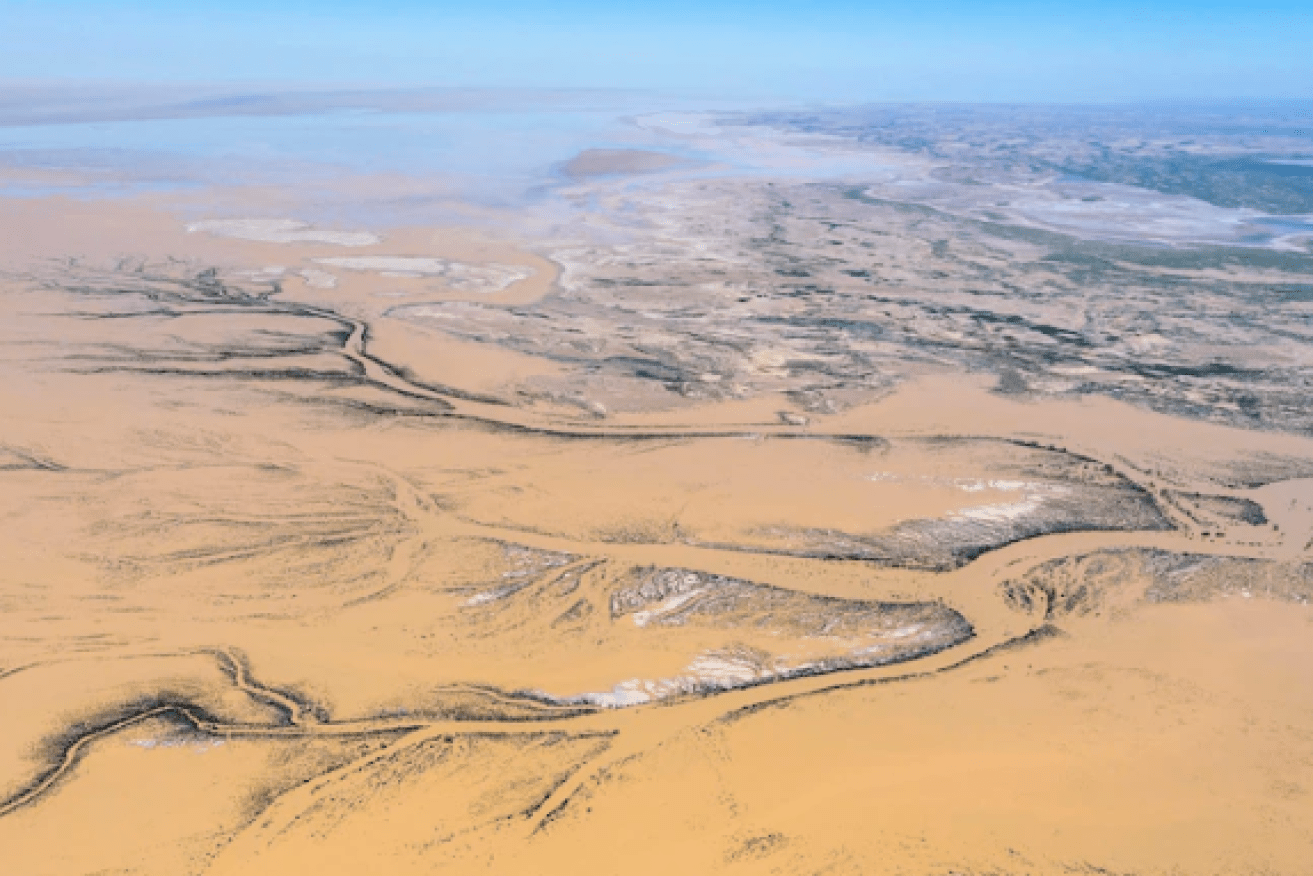Origin’s surprise withdrawal leaves Green groups hoping for fracking-free basin
Origin has relinquished tenements in the Lake Eyre Basin, reviving hopes that the region would avoid fracking for gas development.


The Lake Eyre Basin (Photo: ABC)
Origin surrendered the licences in May. Another tenement the company was seeking to surrender was still subject to a process that gave other interest holders an option to acquire.
The surrender was a part of Origin’s strategy when it exited the controversial Beetaloo project in the Northern Territory when it said it would get out of the upstream exploration sector.
At the time of the Beetaloo exit Origin chief executive Frank Calabria said, “The decision to divest our interest in the Beetaloo and exit other upstream exploration permits over time, will enable greater flexibility to allocate capital towards our strategic priorities to grow cleaner energy and customer solutions, and deliver reliable energy through the transition.
However, the Lake Eyre Basin has also part of a battle between graziers, environmentalists and the gas industry. The region includes the channel country and the Palaszczuk Government has started consultation on options to protect the Queensland section of the basin.
Environmentalists also believe the basin includes one of the last, free-flowing desert rivers and fertile floodplains of their kind left on earth. It also supports species of threatened migratory shorebirds, like the critically endangered Curlew Sandpiper.,
Environment Minister Leanne Linard said the feedback was being sought from those who call the basin home, from those who have a connection to its land, and from the businesses and industries that operate there.
Lock the Gate said Origin’s surrender of its tenements in the basin was a hopeful sign.
Grazier and Lock the Gate spokesman Nick Holliday said stakeholder groups were hopeful the tenements would not re-appear with another gas company.
“More than half a million hectares of the Channel Country flood plains remain under petroleum tenements, owned by companies like Santos,” he said.
“Origin didn’t give up on these tenements out of charity – it did so because in a decarbonising world, fracking for fossil gas in a place as remote as far western Queensland makes less and less commercial sense.
“But we know not all petroleum companies are smart enough to understand this. Queensland’s unique desert river systems remain under threat until the Palaszczuk Government formally bans oil and gas development on the floodplains.
“These floodplains are sacred to traditional owners, and without them, there would be no thriving tourism or clean green beef industries. The Channel Country can have all this, or it can have oil and gas. It can’t have both.”
“We hope this is a sign of things to come, and the Palaszczuk Government is finally making good on its promise to protect some of the last free flowing desert rivers in the world from the scourge of fracking.
“These floodplains support a huge organic beef industry, a huge tourism industry, and are of course sacred to Traditional Owners. All this would be lost if fracking is allowed to pollute and disrupt the flow of these rivers and floodplains.”












